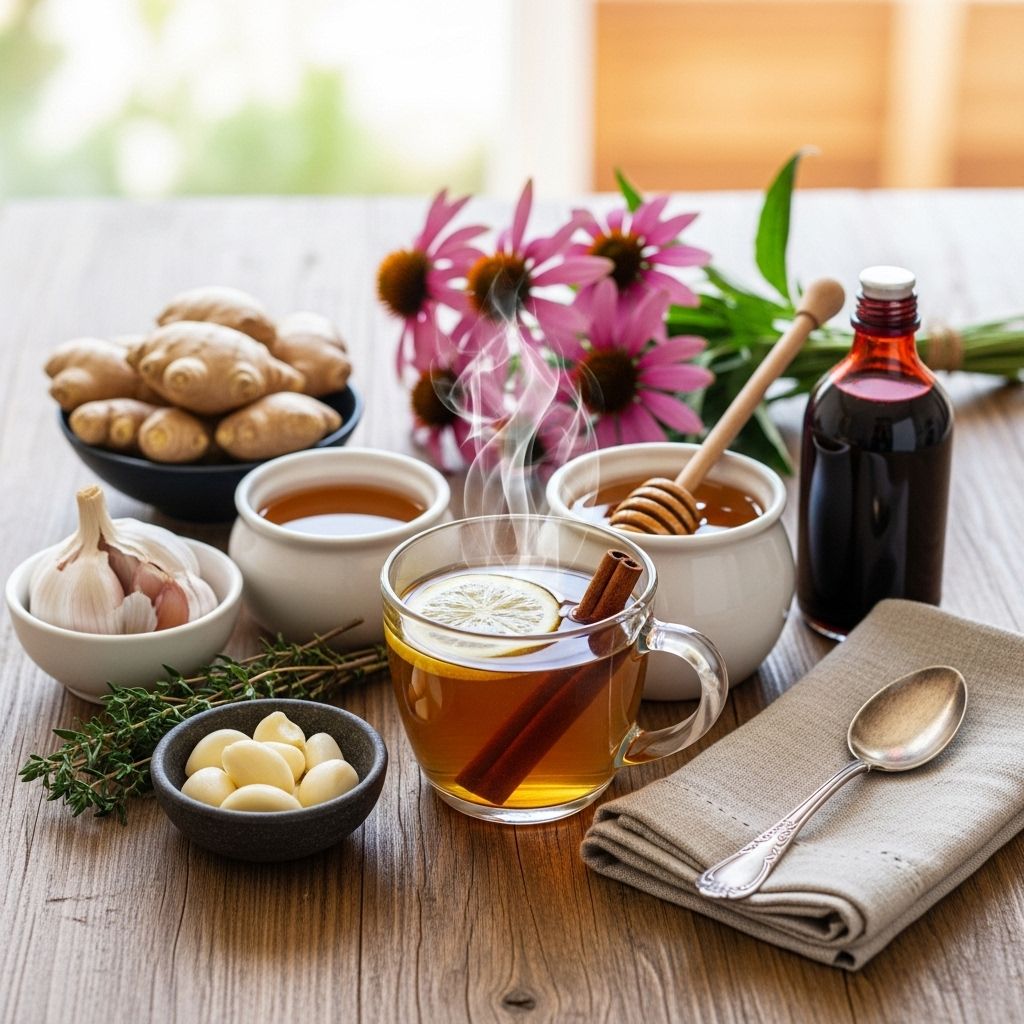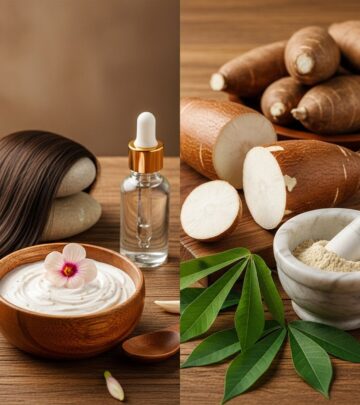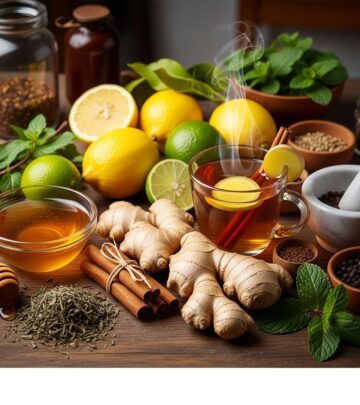Natural Remedies to Effectively Fight Colds and Support Recovery
Discover evidence-based natural remedies and expert wellness tips to relieve cold symptoms, boost immunity, and speed up recovery at home.

Natural Remedies to Fight Colds: Comprehensive Strategies for Relief
Catching a cold is never convenient, but thankfully, there are many natural remedies that can help ease symptoms and speed recovery. The common cold is caused by various viruses and tends to strike when we are most vulnerable—during seasonal transitions or periods of stress. Instead of solely relying on over-the-counter medications, many people seek gentler, effective alternatives from nature and holistic health routines for comfort and healing.
In this comprehensive guide, you’ll discover trusted natural remedies—many backed by scientific research—and practical lifestyle tips for supporting your body through a cold. Learn when to rest, what to eat and drink, and which herbal or home solutions can make a real difference in your recovery journey.
Contents
- Understanding the Common Cold
- Top Natural Remedies for Cold Relief
- Lifestyle Practices for Rapid Recovery
- Foods and Drinks to Support Healing
- Herbal and Natural Supplements
- Soothing Symptom Management
- Frequently Asked Questions (FAQs)
Understanding the Common Cold
The common cold is a viral infection primarily impacting the upper respiratory tract. Rhinoviruses are the most frequent culprits, but many viral strains are responsible. Symptoms include sore throat, nasal congestion, runny nose, cough, sneezing, headache, and sometimes mild fever or fatigue. Most colds are mild and self-limiting, resolving within 7–10 days. However, supportive care and symptom management can greatly improve comfort and reduce the impact on daily life.
Why Natural Remedies?
There is no medical cure for the common cold, but natural remedies can:
- Relieve symptoms such as sore throat, cough, and congestion.
- Support the immune system for a faster recovery.
- Promote comfort using gentle, risk-free strategies at home.
Top Natural Remedies for Cold Relief
Explore the most reliable and practical natural approaches to fight cold symptoms and speed up your recovery:
1. Stay Hydrated
Fluids are essential during illness. Drinking water, herbal teas, broths, and diluted juices helps keep mucous membranes moist, thins mucus, and can soothe a sore throat. Dehydration worsens symptoms and may prolong the recovery process.
- Try: Warm water with honey and lemon, herbal teas, or clear soups.
- Avoid: Caffeinated and alcoholic beverages, which can worsen dehydration.
2. Rest, Rest, Rest
Your body heals most efficiently while you’re resting. Don’t try to push through a cold—taking the time to relax aids the immune system in clearing the infection. While naps are valuable, deep night-time sleep is especially important for immune regulation and recovery.
3. Honey
Honey has powerful antimicrobial and anti-inflammatory effects. It is a time-tested remedy for cough and sore throat and may also support immune defense. Mix it into warm drinks, drizzle over porridge, or take a spoonful as needed to soothe irritated tissue.
Note: Never give honey to children under 12 months old due to the risk of infant botulism.
4. Ginger
Ginger contains natural compounds that can reduce inflammation, soothe sore throats, and provide mild pain relief. Sliced fresh ginger brewed into tea is warming, comforting, and helps ease nausea.
- Combine ginger with lemon and honey for maximum effect.
5. Garlic
Garlic is revered for its immune-boosting and possible antiviral properties, thanks to the active compound allicin. Consuming raw or lightly cooked garlic regularly may make you less likely to fall ill, and adding extra during a cold may help reduce symptom severity.
- Add crushed garlic to soups, broths, or as a topping for toast.
6. Chicken Soup
Chicken soup is a classic comfort food and natural decongestant. The steam helps loosen congestion, the warm broth soothes inflamed tissues, and the combination of nutrients offers gentle support to the immune system. While it doesn’t cure a cold, there’s evidence it can help relieve many symptoms and provide needed hydration.
7. Saltwater Gargle
Gargling with warm salt water reduces throat pain, helps clear mucus, and may decrease viral load in the mouth and throat. Mix 1/4 to 1/2 teaspoon of salt into a glass of warm water, gargle several times daily for best results.
8. Steam Inhalation
Steam therapy helps relieve nasal congestion, sinus pain, and irritation. Create a steam tent by leaning over a bowl of hot water with a towel over your head, inhaling deeply for a few minutes. Adding a drop of eucalyptus oil can enhance decongestant effects.
9. Menthol, Eucalyptus, and Essential Oils
Menthol and eucalyptus oils provide a cooling sensation and may help improve airflow in stuffy noses. They can be added to steam inhalations or rubbed into the chest as ointments (such as vapor rubs).
Warning: Essential oils should never be ingested and must be diluted when used topically. Keep out of reach of children.
10. Humidifiers and Warm Baths
Air that’s too dry can further irritate mucous membranes. Keeping a humidifier running—especially overnight—can reduce discomfort and promote easier breathing. Warm baths help reduce aches, ease muscle tension, and may temporarily lower low-grade fever.
Lifestyle Practices for Rapid Recovery
Beyond direct symptom treatments, several important lifestyle habits support the body’s ability to fight off illness:
- Prioritize sleep: Quality sleep increases immune response and supports tissue repair.
- Avoid smoking and secondhand smoke: These irritate airways and weaken immune defenses.
- Limit strenuous activities: Reserving energy for healing is essential during illness.
- Practice good hygiene: Regular handwashing prevents spreading the virus within your household.
Foods and Drinks to Support Healing
Nutrient-rich foods and fluids help fuel immune responses, reduce inflammation, and accelerate recovery. Include foods that are gentle on the digestive system and easy to prepare:
- Citrus fruits (oranges, lemons, grapefruit): High in vitamin C, antioxidants.
- Broths & clear soups: Hydrating, easy to digest, provide minerals and amino acids.
- Hot tea: Black, green, or herbal teas offer antioxidants, warmth, and hydration.
- Yogurt and fermented foods: Rich in probiotics to support gut and immune health.
- Spicy foods (as tolerated): May help open nasal passages and stimulate drainage.
Herbal and Natural Supplements
Several popular herbal and natural products are associated with supporting respiratory health or reducing cold duration. Here’s an overview of commonly used supplements and what science says about them:
| Remedy | Main Benefit | Notes/Precautions |
|---|---|---|
| Echinacea | May boost immune function, possibly shorten cold duration | Best used at onset of symptoms. Not recommended for those with ragweed allergies. |
| Vitamin C | May slightly shorten cold duration; supports immune health | Most helpful when taken regularly, not just at onset of cold. |
| Zinc | May reduce length/severity when taken within 24–48h of symptoms | Excess causes nausea, metallic taste; avoid nasal sprays (risk of loss of smell). |
| Elderberry (Sambucus) | May provide antioxidant support, reduce cold symptoms | Available as syrup, gummies, or capsules. |
| Probiotics | Supports overall immune balance, may slightly lower URI incidence | Found in fermented foods and supplements. |
| Green tea (Camellia sinensis) | Contains antioxidants, may help modulate immunity | Drink warm or use as gargle for sore throats. |
Always consult with your healthcare provider before trying new supplements, especially if you are pregnant, breastfeeding, have underlying conditions, or take medication.
Soothing Symptom Management
Sometimes, the best relief is simple, consistent self-care. Here are a few ways to soothe common symptoms:
- Congestion: Use saline sprays or a neti pot to rinse nasal passages. Steam inhalations and menthol rubs help, too.
- Sore throat: Use honey, herbal lozenges, or warm salt water gargles for comfort.
- Cough: Sip on honey-lemon-ginger tea, try natural cough syrups, or use a humidifier to keep airways moist.
- Headache/body aches: Apply a warm compress, drink extra fluids, try gentle stretching or a warm bath.
- Fever: Focus on rest, light clothes, tepid baths, and adequate hydration.
Remedies to Use With Caution
- Avoid giving honey to infants under one year old.
- Be cautious with essential oils—never ingest and always dilute for topical use.
- Use supplements as directed; more is not always better.
When to See a Doctor
- Shortness of breath, chest pain, or severe headache.
- High, persistent fever unresponsive to over-the-counter treatment.
- Symptoms lasting longer than 10–14 days or worsening after initial improvement.
- Concerns for underlying conditions or complications (asthma, COPD, immune suppression).
Frequently Asked Questions (FAQs)
Q: Can natural remedies actually cure the common cold?
A: No, there is currently no cure for the common cold. Natural remedies and home treatments help manage symptoms, soothe discomfort, and may slightly shorten the duration, but do not eradicate the virus itself.
Q: Is it safe to take herbal supplements while on other medication?
A: Some herbal supplements can interact with prescription or over-the-counter medications. Always check with a healthcare professional before starting any new supplement, especially if you take other medicines or have a chronic condition.
Q: How soon should I start natural remedies?
A: It’s best to begin supportive care as soon as you notice symptoms. Early intervention may reduce the severity and length of a cold, especially with remedies like zinc and echinacea, which work best at the onset.
Q: Are there ways to prevent future colds naturally?
A: Yes! Practice good hygiene, eat a balanced diet rich in fruits and vegetables, get enough sleep, manage stress, and consider probiotics to support your immune system. Avoid close contact with those who are sick, and wash your hands frequently.
Q: What should I avoid when treating a cold?
A: Avoid smoking, excessive alcohol, and unnecessary antibiotics (which don’t treat viral infections like colds). Use caution with decongestants in young children and only take supplements as directed.
Final Thoughts
Natural cold remedies offer gentle, supportive strategies for managing symptoms and promoting recovery. While they won’t provide a cure, their focus on hydration, rest, and nourishing foods supports your body’s internal healing processes. With mindful self-care and knowledge, you can reduce discomfort and help your immune system do what it does best—keep you healthy!
Read full bio of medha deb











